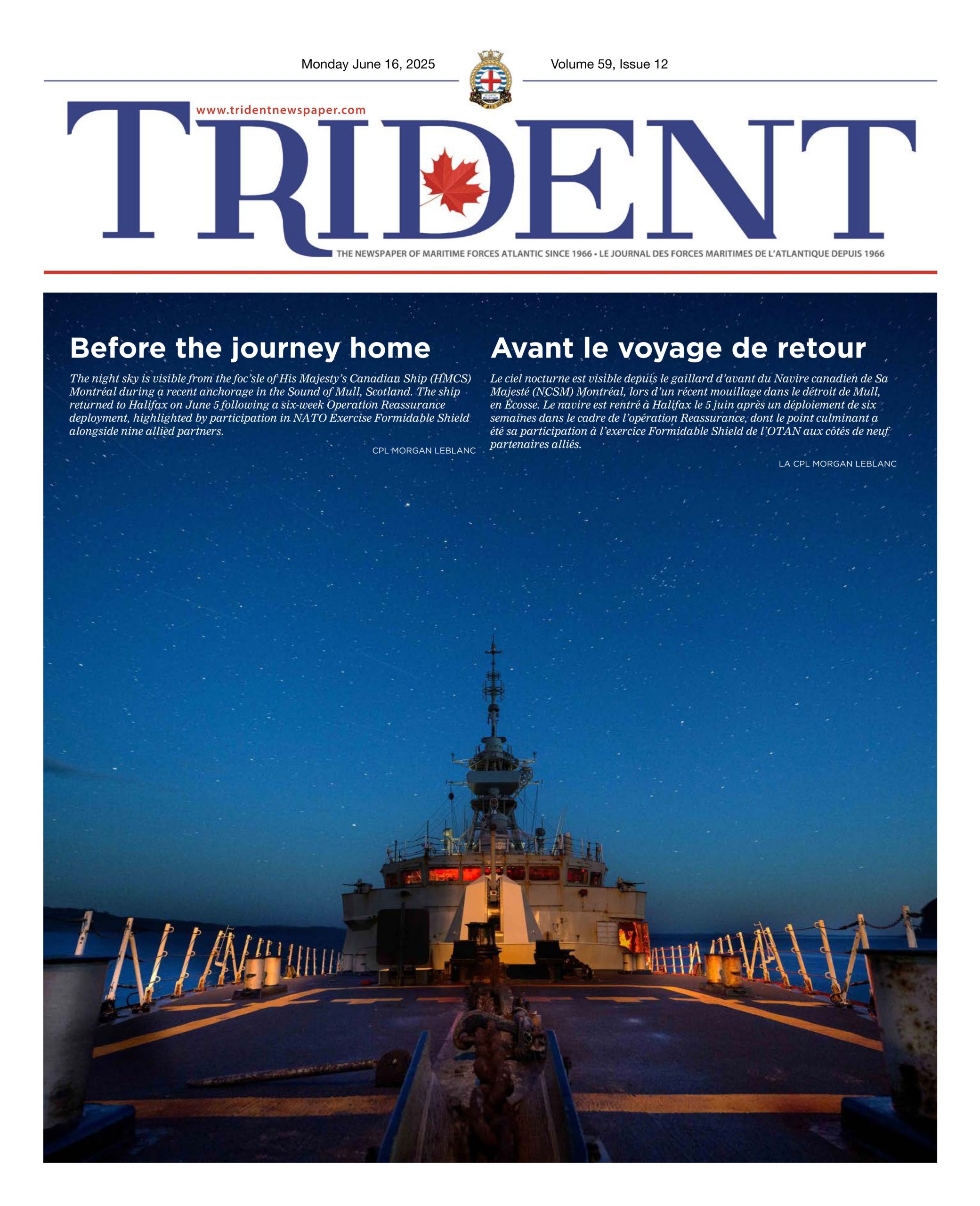
RYAN MELANSON, TRIDENT STAFF
Provincial health officer talks cannabis at CFMWC
By Ryan Melanson,
Trident Staff
As of October 17, recreational use of cannabis has become legal in Canada, though with a number of restrictions on the drug that vary from province to province. For CAF members, the new policy DAOD 9004-1 covers the rules around use of cannabis, and a related policy lays out the framework for civilian DND employees.
Many still have questions and concerns about the drug, and in an effort to help its employees make informed choices regarding cannabis, the Canadian Forces Maritime Warfare Centre (CFMWC) recently invited Dr. Robert Strang, Nova Scotia’s Chief Medical Officer of Health, to speak about the changes around this long-prohibited substance. His presentation was part of an ongoing Total Health and Wellness initiative at CFMWC that includes monthly presentations or activities focused on the physical and mental health of personnel.
“The more we can help people understand this, the better. I know the Canadian Armed Forces has produced their own set of rules for their members around the use of cannabis, but I’m talking about what they can expect more broadly out in their communities, and about the effects of cannabis on their health,” Dr. Strang said.
With regards to the health impact of consuming cannabis, Dr. Strang wasn’t shy to admit that research and science needs time to catch up before making definitive statements. Long-term research on cannabis users has been difficult due to the drug’s legal status, and the hesitation of potential test subjects to admit to criminal activity.
“It’s been hard to talk about cannabis, because it’s been illegal, so that creates a lot of barriers. There’s now a lot of mythology around cannabis; some people talk about reefer madness and the terrible things that can happen, while other folks believe it can cure every health ailment out there. The truth is likely somewhere in the middle,” he said.
“Cannabis does have potential benefits that we need to see some more research on, and it also comes with some health risks, so we need to be careful. That’s not much different than tobacco, alcohol, or many other legal and illegal substances.”
While the only medical uses for cannabis currently backed up by science include as treatment for certain types of seizures, cancer pain, and a small list of other ailments, Strang said proper research will likely bring others into the fold. Adverse health effects, though, are still a real concern, whether using cannabis for recreational or medicinal purposes. Dr. Strang cautioned that smoking the plant comes with risks comparable to smoking any substance, including damage to the throat, lungs and increased risk of heart disease. While it may be safer to consume cannabis orally or topically, the drug can still induce anxiety and other unwanted effects, especially in large doses, and has also been linked to the development of certain mental illnesses. Research also shows the drug can be increasingly harmful when used by young people who have still-developing brains.
Dr. Strang’s presentation also went beyond health considerations into some of the details of new federal, provincial and municipal laws, including the types of cannabis products that will be available for sale, limits on personal possession and growing cannabis, impaired driving, and the rules around smoking the drug on public property, which will be stricter in the HRM than in most municipalities.
Capt(N) Jamie Tennant, the Commanding Officer of CFMWC, said he was happy to take a bit of time out of the day to help his team get more knowledgeable about cannabis and the rules and restrictions that surround it.
“This is a big change in the law, it’s coming at us fast, and it’s something many of us don’t know much about, so we very much appreciate Dr. Strang coming in to help us get a little bit more informed on the topic,” he said.
“I think there’s some very valuable information that can be taken from this, and it’s something they can absorb themselves and then share with their families and anyone else who might benefit from it.”
For further information, Dr. Strang recommended consulting federal and provincial guidelines on cannabis that are easily available online. Information specifically for CAF members and DND employees can be accessed through DWAN computers at the link http://intranet.mil.ca/en/policies-orders-directives/cannabis-what-you-need-to-know.page. Members locally should refer to R HALGEN 2018289000507 for information on policies specific to cannabis consumption at CFB Halifax.





